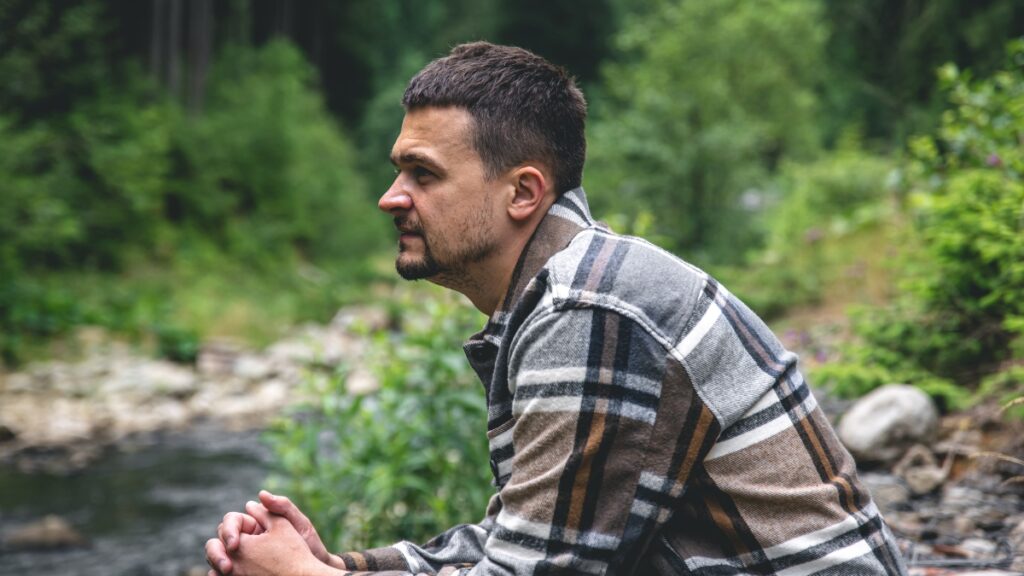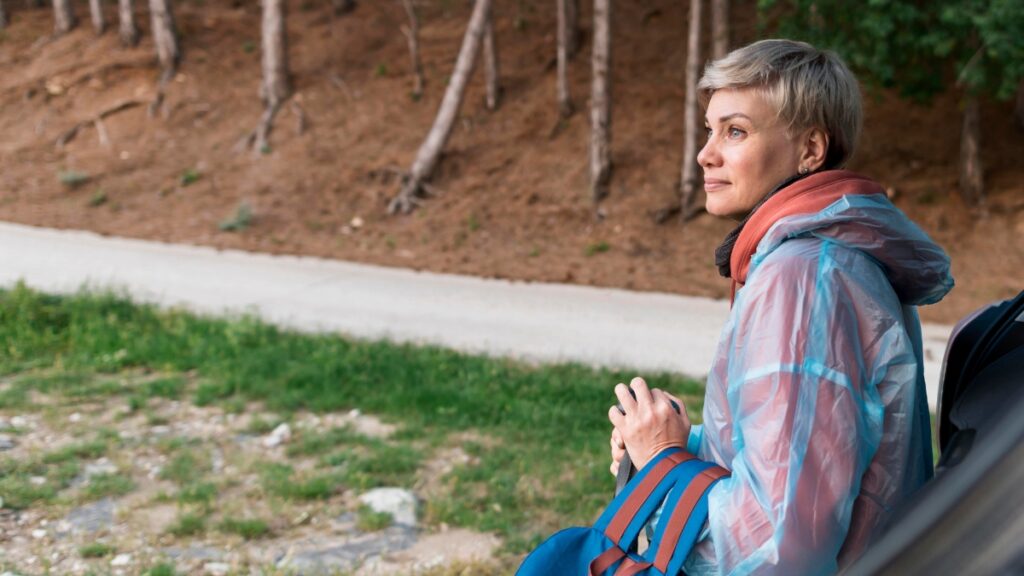Complex PTSD Treatment in Boulder, Colorado
Complex Post-Traumatic Stress Disorder (CPTSD) affects individuals who have endured long-term trauma, often leaving them stuck in cycles of emotional pain, shame, and isolation. At Flatirons Recovery, we understand how this condition disrupts everyday life. Through our specialized, complex PTSD treatment in Boulder, Colorado, we offer a safe, compassionate space where healing begins.
With personalized treatment plans, proven therapies, and holistic wellness support, our programs empower individuals to reclaim their path. Whether you’re starting fresh or continuing your recovery, we provide the tools and community for lasting change.
Understanding Complex PTSD
CPTSD is a mental health condition that can develop after exposure to chronic or repeated traumatic events, especially those from which escape feels impossible. Often rooted in childhood or adolescence, these experiences can include prolonged abuse, neglect, domestic violence, or exposure to war and community violence.
CPTSD shares core symptoms with PTSD, such as intrusive memories, nightmares, and hypervigilance. However, it also includes a broader set of challenges known as disturbances in self-organization. These affect emotional regulation, self-perception, and interpersonal relationships, making CPTSD a distinct and deeply impactful diagnosis.
At Flatirons Recovery, we specialize in recognizing these complex symptoms and providing trauma-informed care customized to each individual’s experience. Our treatment for complex PTSD helps clients process trauma and regain control over their lives. To better understand how these symptoms take root, it’s important to explore the underlying contributory causes:
- Prolonged Child Abuse: Physical, emotional, or sexual abuse experienced over time.
- Domestic Violence: Exposure to long-term abuse within intimate relationships.
- Neglect: Emotional or physical neglect, particularly in early developmental years.
- Human Trafficking: Coercive control and exploitation leading to chronic trauma.
- War and Conflict: Repeated exposure to violence, displacement, or combat situations.
- Community Violence: Growing up in environments with persistent threats to safety.
Symptoms of Complex PTSD
Complex PTSD can affect nearly every aspect of life. These symptoms don’t reflect weakness but a natural response to prolonged trauma, often developed as a way to survive overwhelming experiences. At Flatirons Recovery, we help individuals understand these patterns with compassion and curiosity, creating space for lasting change. Below are some of the most common ways complex PTSD can show up in everyday life.
Emotional Dysregulation
Individuals living with complex PTSD often experience intense shifts in emotion that can feel overwhelming or confusing. Persistent sadness, episodes of depression, sudden anger, or emotional numbness may appear without clear warning. These emotional swings are not signs of weakness; they are natural responses shaped by long-term trauma, and they deserve compassionate, patient care.
Negative Self-Perception
Complex PTSD can quietly erode the way a person sees themselves. Many carry a deep sense of shame or guilt, feeling responsible for what they endured or believing they are somehow broken. Over time, this internal narrative can lead to helplessness, harsh self-judgment, and a loss of trust in one’s own worth.
Distorted Relationships
Trauma often disrupts the ability to feel safe in connection. Individuals may find it difficult to trust others, withdraw from relationships, or repeat patterns that don’t feel healthy or supportive. Even when connection is deeply desired, CPTSD can make closeness feel risky, leaving people feeling isolated or misunderstood.
Re-experiencing Trauma
Memories connected to trauma can resurface unexpectedly through flashbacks, distressing dreams, or intrusive thoughts. These moments can bring intense emotional and physical reactions, as though the past is happening all over again. Living in a state of heightened alertness or hypervigilance can make everyday life feel exhausting and unpredictable.
Dissociation
For some, the mind’s way of coping with overwhelming experiences is to disconnect. Dissociation may look like feeling detached from the body, losing track of time, or sensing that the world is unreal or distant. While this response once served as protection, it can make it difficult to feel present or grounded in daily life.
Avoidance Behaviors
Avoidance often develops as a way to stay safe from emotional pain. Individuals may steer clear of certain places, people, or conversations that stir up memories of trauma. Over time, this can narrow a person’s world, limiting opportunities for growth, connection, and healing.
Loss of Meaning or Faith
Long-term trauma can leave people questioning their purpose, beliefs, or place in the world. Feelings of hopelessness, disconnection from spiritual or personal values, and a lack of motivation for the future are common. Yet even here, beneath the weight of these questions, there is still space for renewal, meaning, and a life shaped by intention.

Complex PTSD and Addiction
CPTSD and addiction frequently go hand-in-hand. Many turn to substances to dull emotional pain or manage distressing symptoms, leading to a destructive cycle. Recent research indicates that the prevalence of CPTSD in the general population ranges from 2.6% to 7.7%, with higher rates observed in at-risk groups, such as adults with psychological difficulties and refugees. This underscores the importance of integrated treatment approaches that address both trauma and its associated challenges, including substance use disorders.
Flatirons Recovery’s dual diagnosis program treats both trauma and substance use simultaneously. This integrated care addresses triggers, supports emotional resilience, and promotes healthy coping strategies.
Through trauma-informed therapy, mindfulness, and holistic support, clients are empowered to heal from both conditions. Tackling them together enhances outcomes and supports sustainable recovery. Healing from CPTSD means addressing both symptoms and root causes. Our Complex PTSD Treatment in Boulder blends clinical insight with compassionate care, personalizing every step of the individual’s story.

Our Approach to Healing from CPTSD
Healing from CPTSD isn’t about fixing what’s broken but about reclaiming your voice, your worth, and your sense of possibility. At Flatirons Recovery, we offer therapies that honor the full experience of trauma while building the inner tools needed for lasting change.
Eye Movement Desensitization and Reprocessing (EMDR)
EMDR is a trauma-focused therapy that supports the reprocessing of distressing memories. Through bilateral stimulation and guided therapeutic techniques, EMDR helps individuals reduce the emotional charge associated with past trauma. It empowers clients to move through painful memories without being overwhelmed by them.
Cognitive-Behavioral Therapy (CBT)
CBT helps individuals recognize and shift harmful thought patterns that may reinforce feelings of fear, shame, or helplessness. By identifying unhelpful beliefs and behaviors, clients learn to respond with clarity and self-compassion. CBT provides practical strategies that support emotional regulation and grounded decision-making.
Dialectical Behavior Therapy (DBT)
DBT is a powerful approach for those struggling with emotional intensity or self-destructive patterns. Rooted in mindfulness and skills-based practice, it teaches clients how to manage distress, improve relationships, and regulate emotions. DBT offers structure and balance for those navigating the complexities of CPTSD.
Acceptance and Commitment Therapy (ACT)
ACT encourages individuals to make values-based choices, even in the presence of difficult emotions or memories. Rather than avoiding pain, clients learn to hold space for it while committing to purposeful action. This therapy is especially effective in helping individuals reconnect with meaning and identity.
Holistic Support for Body and Mind
We integrate whole-person care into our Complex PTSD Treatment in Boulder, addressing emotional well-being and physical health. Practices such as mindfulness and meditation help reduce anxiety and strengthen emotional resilience, while yoga and somatic therapy support the release of trauma held within the body.
Art and experiential therapies allow for meaningful self-expression and exploration; nutrition counseling provides foundational support for mood and cognitive wellness. These integrative therapies deepen recovery and promote balance, empowering clients to reconnect with themselves in healthy, lasting ways.
Programs Tailored for CPTSD Treatment in Boulder
We offer structured programs that meet clients where they are. Healing is easier in a supportive environment, and at Flatirons Recovery, clients engage in group therapy, peer connection, and family programs that encourage trust and growth. As one of the leading complex PTSD treatment centers in Colorado, we understand that every healing journey is different. Whether you’re new to recovery or returning, our flexible offerings support your unique path and foster a deep sense of belonging. Each program is designed to support personal growth while providing the guidance and community essential to meaningful, lasting recovery.
Partial Hospitalization Program (PHP)
Our PHP offers a structured and immersive healing experience five days a week. This level of care is ideal for individuals needing intensive support without full residential placement. With a focus on trauma processing, emotional regulation, and peer connection, PHP offers a strong foundation for recovery while allowing space for rest and integration.
Intensive Outpatient Program (IOP)
Our IOP provides comprehensive therapy while allowing clients to maintain daily responsibilities. Designed for those stepping down from a higher level of care or beginning structured treatment, this program offers flexibility without sacrificing depth. Through group and individual therapy, clients gain tools for continued healing and growth.
Evening Intensive Outpatient Program (Evening IOP)
The Evening IOP makes recovery more accessible by offering sessions outside of standard work or school hours. This program is well-suited for individuals balancing treatment with work, parenting, or other daytime commitments. It offers the same trauma-informed care, just on a schedule that fits your life.
Recovery Ranch Program
Located on a tranquil 80-acre horse ranch, this program provides a unique opportunity for immersive, nature-based healing. With 24/7 support, the Recovery Ranch blends trauma-informed therapy with the grounding power of nature and animal connection. Here, individuals find stillness, structure, and meaningful transformation.
Sober Living (Mount Falcon House for Men)
Our sober living home offers a stable, structured environment where men can focus on continued growth in early recovery. It fosters peer accountability, community connection, and day-to-day routines that reinforce healing. Residents benefit from access to Flatirons programming, ongoing therapy, and supportive mentorship.

Comprehensive Services Supporting Recovery
Healing from CPTSD takes time, trust, and consistent support. Our full range of services complements therapy by addressing every dimension of recovery. From family involvement and aftercare planning to motivational interviewing, experiential therapies, and alumni programming, we ensure that support doesn’t stop after treatment ends. These services create a continuum of care that nurtures long-term healing and community connection.
When to Seek Help for CPTSD
If you find yourself stuck in cycles of emotional overwhelm, struggling with relationships, using substances to cope, or feeling disconnected from your sense of self, it may be time to seek support. The symptoms of complex trauma can quietly shape your life for years, but healing begins the moment you recognize you don’t have to carry this alone.
Reaching out for help is not a sign of weakness but a sign of strength. Whether you’re unsure where to begin or you’ve been in recovery before, our team is here to walk with you through the next right step. With compassionate support and trauma-informed care, transformation is always within reach.
Why Choose Flatirons Recovery
At Flatirons Recovery, we combine deep clinical expertise with compassionate, person-centered care. Our approach to complex PTSD treatment in Boulder is rooted in trauma-informed practices, personalized therapy, and connection to both nature and community. We believe in honoring each individual’s story and creating space for meaningful growth, not just symptom relief.
From our beautiful location to our dedicated team of clinicians and holistic therapy options, everything we do is designed to support lasting healing in mind, body, and spirit. As one of the trusted complex PTSD treatment centers in Colorado, we’re here to help you rediscover what’s possible.

Frequently Asked Questions (FAQs)
What’s the difference between CPTSD and borderline personality disorder (BPD)?
While they can share symptoms like emotional instability and relationship difficulties, CPTSD typically stems from long-term trauma and includes flashbacks and avoidance behaviors, which are not central to BPD.
Can people with CPTSD benefit from group therapy?
Yes. Group therapy can provide valuable peer support and reduce feelings of isolation, especially when guided by trauma-informed clinicians.
What types of professionals treat CPTSD at Flatirons Recovery?
Our team includes trauma-informed therapists, licensed addiction counselors, and holistic wellness practitioners with expertise in dual diagnosis care.
Are medications used in treatment for CPTSD in Boulder?
In some cases, medications may be prescribed to help manage symptoms such as anxiety, depression, or sleep disturbances. These are always combined with therapy for the best results.
How long does CPTSD treatment usually last?
Treatment duration varies based on individual needs, but many clients benefit from several weeks to months of ongoing support and care.
How do I get started at Flatirons Recovery?
To get started, reach out to our admissions team to schedule a trauma-informed assessment.
Reclaim Your Life With Complex PTSD Treatment in Boulder, Colorado
You don’t have to face the effects of trauma alone. Our complex PTSD treatment in Boulder, Colorado, is here to help you heal and move forward with strength and purpose.
Flatirons Recovery offers the guidance and care you need, no matter where you are on your journey. Change is within reach, and we’re here to support you every step of the way.
Contact us today. Recovery starts with a single, courageous step—and we’re ready to walk it with you.

